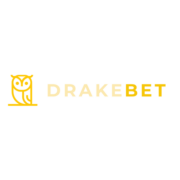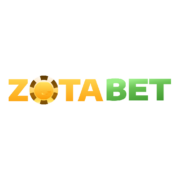The Belgian Gambling Commission (Kansspelcommissie) has issued formal warnings to Club Brugge KV and RSC Anderlecht, two of Belgium’s top football clubs, for allegedly violating the country’s gambling sponsorship regulations. Authorities claim the clubs have failed to comply with new restrictions that limit the display of gambling-related branding on team jerseys. If the violations continue, regulators may impose financial penalties or additional sanctions.
Stricter Gambling Sponsorship Rules Take Effect
Belgium’s gambling sponsorship ban came into force on January 1, 2025, as part of a broader initiative to reduce the prominence of betting-related marketing in professional sports. Under the new law:
- Gambling brands cannot appear on the front of jerseys.
- Sponsorship logos are permitted on the back, but must be smaller than 75 cm².
This move aligns with growing concerns in Europe, where policymakers are scrutinizing gambling sponsorships due to their potential impact on young fans and problem gambling rates.
Clubs Accused of Circumventing Sponsorship Restrictions
Regulators claim that Club Brugge and RSC Anderlecht manipulated logo measurements to bypass the new rules. Instead of measuring the total space occupied by the brand name, the clubs reportedly calculated each letter separately, resulting in a misleadingly smaller size.
The Belgian Gambling Commission rejected this interpretation, stating that logos must be measured as a whole, including blank space. The clarification signals that authorities will take a strict enforcement approach, rather than allowing teams to use alternative measurement methods that undermine the intent of the law.
Potential Penalties for Non-Compliance
Marjolein De Paepe, a spokesperson for the Belgian Gambling Commission, emphasized that clubs must respect the legal framework. Continued violations may lead to:
- Official warnings for first-time offenses.
- Financial penalties for repeated breaches.
- Suspension or revocation of gambling licenses in severe cases.
The commission has also raised concerns about indirect advertising strategies. Some sports clubs have continued promoting gambling brands by featuring operator-backed foundations or news platforms instead of directly displaying betting company logos. Regulators are investigating whether these tactics also violate the sponsorship ban.
Impact on the Gambling Industry and Sports Sponsorships
Belgium’s approach reflects a broader shift in European gambling regulations, where authorities are tightening restrictions on betting-related sponsorships. While gambling companies have traditionally used sports partnerships for visibility and fan engagement, these stricter laws are forcing the industry to rethink its marketing strategies.
How Gambling Brands Might Adapt
With sponsorship limitations in place, betting operators may turn to alternative advertising channels, including:
- Digital marketing campaigns and targeted online advertising.
- Affiliate partnerships with content creators and industry influencers.
- Responsible gambling sponsorships that promote ethical betting practices.
- Collaborations with media platforms to provide betting-related content.
As sponsorship opportunities shrink, operators will need to adjust their branding strategies to remain compliant while maintaining audience engagement.
A Precedent for Other European Markets?
The developments in Belgium could influence other European regulators, potentially leading to:
- Stronger enforcement measures in jurisdictions with existing gambling sponsorship rules.
- Expanded sponsorship bans across additional markets.
- More aggressive restrictions on indirect advertising tactics.
Football clubs and gambling firms must now reassess their partnerships to ensure compliance with evolving laws. Failure to do so could result in hefty penalties and reputational risks.
What Comes Next?
The Belgian Gambling Commission’s decision raises several key questions:
- Will clubs explore new sponsorship models that comply with regulations while still attracting betting operators?
- How will authorities address indirect sponsorship tactics used by some teams?
- What impact will these changes have on sports funding and gambling brand visibility?
As authorities continue monitoring compliance, football clubs and betting firms must navigate regulatory challenges while maintaining a strong market presence. Belgium’s approach may serve as a blueprint for other countries, influencing the future of gambling advertising in professional sports.



The Author



The Author
Site Admin














